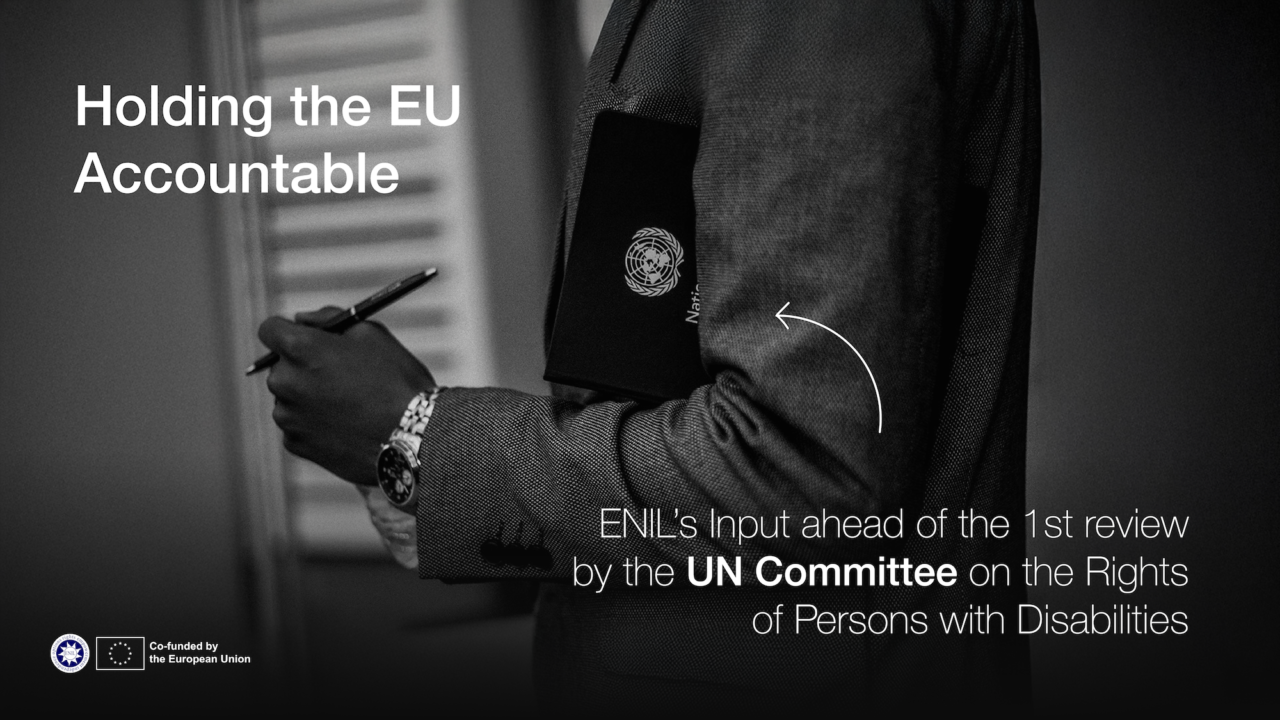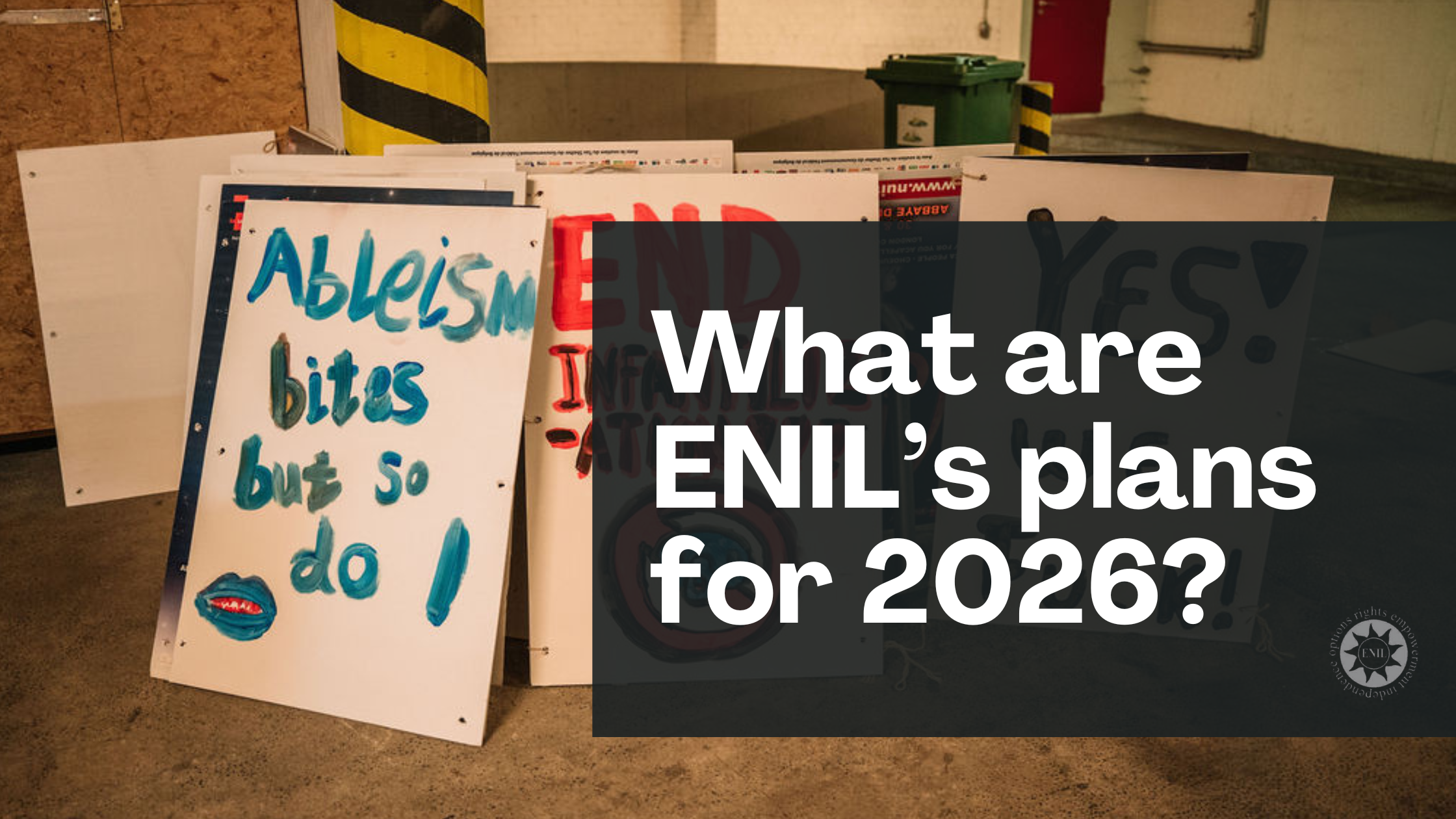On March 11-12, 2025, the European Union (EU) will be reviewed by the Committee on the Rights of Persons with Disabilities for the first time since the EU ratified the Convention on the Rights of Persons with Disabilities (CRPD). The EU authorities will answer questions from the Committee regarding the progress achieved in implementing the CRPD. After the review, the Committee will gather all the information provided by the EU and civil society and withdraw their own recommendations, in their concluding observations.
In order for civil society to provide information, we use alternative or shadow reports. These reports contrast the information provided by State Parties, in view of civil society’s own experience and knowledge.
In the context of the EU’s review, ENIL has provided two shadow reports. The first one covered the period until 2022, and the second focused on 2022-2025. This second report takes into consideration developments in the three years between February 2022 and February 2025, as well as the information provided to the Committee on the Rights of Persons with Disabilities by the European Union in its official Combined second and third reports (dated 18 April 2023.)
Highlights of our shadow report
- EU funding is still directed toward large institutions, small group homes, special schools or sheltered workshops rather than community-based services. The European Commission needs to take action against misuse of EU funds and increase transparency and monitoring mechanisms, and include an explicit prohibition on investments of EU funds into institutions in the regulations.
- Disabled People’s Organisations (DPOs) must be included in EU monitoring mechanisms, and be meaningfully engaged in the preparation and implementation of the EU budget. The EU must maintain adequate funding for advocacy activities of EU-wide disability networks and DPOs.
- The Commission’s legislative proposal on the protection of vulnerable adults in cross-border situations could lead to grave UNCRPD violations, allowing for the recognition of institutionalisation decisions and deprivation of legal capacity of adults in cross-border situations and the registration of highly sensitive data. Substantial changes in the proposal are needed, or it should be withdrawn.
- Sheltered workshops continue to receive substantial financial support from national governments under EU state aid regulations. ENIL calls for urgent reforms to these policies, including an end to public subsidies for sheltered employment and the redirection of funds toward inclusive workplace initiatives.
- Despite being a major global donor, the EU does not have a dedicated disability inclusion strategy for its external funding programs. In candidate countries, EU funds are still being used to build institutional care facilities, undermining efforts to promote independent living. ENIL urges the EU to integrate deinstitutionalization as a core condition for accession and international aid, ensuring that funds are directed toward community-based support and services instead of perpetuating outdated institutional models.
ENIL will collaborate with other civil society organisations to prepare our input during the EU review. This includes attending discussions and coordinating with allies and partners. ENIL will also be present during the EU review in Geneva, in order to provide our input during the civil society briefing with the CRPD Committee, which takes place before the review. Civil society is not allowed to intervene during the review, as it is a dialogue between the State Party and the Committee.
We will follow the examination on the 11th and 12th and closely review the concluding observations when they are published. We will aim to hold the EU accountable on the recommendations provided by the CRPD Committee.
You may find the first report here, and the second updated report here.



